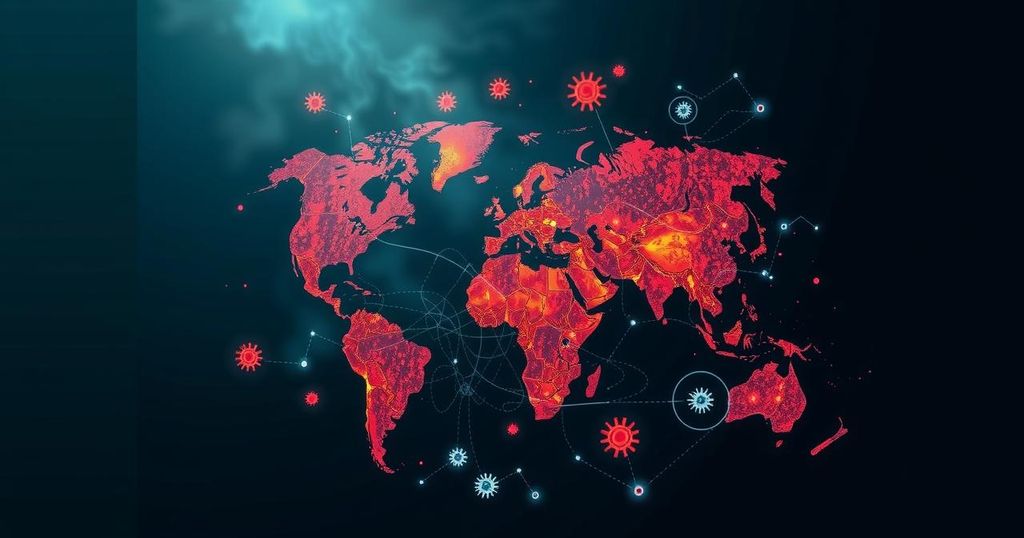Record Threats to Health Caused by Climate Change, According to Major Report

The Lancet Countdown report reveals that climate change is driving unprecedented health risks worldwide. With ten out of fifteen tracked health indicators at alarming levels, the findings include rising mortality from heat, increased disease spread, and food insecurity. Despite some progress noted in pollution reduction and renewable energy use, urgent action is needed to mitigate further health impacts associated with climate change.
A recent comprehensive report highlights the escalating threats that climate change poses to global health, underscoring a range of alarming impacts that have been documented over the past years. The report, released in light of severe weather events in 2023, which is projected to be the hottest year on record, outlines that significant time lost in addressing climate change has come at a considerable cost in human lives. Compiled by the Lancet Countdown team, comprising 122 experts from various organizations including the World Health Organization, the report identifies that out of 15 health indicators tracked over the past eight years, ten have reached unprecedented levels of concern. These include an increase in extreme weather events, heightened mortality rates among the elderly due to heat, the spread of infectious diseases, and rising levels of food insecurity as a consequence of droughts and floods affecting agricultural production. Marina Romanello, the executive director of the Lancet Countdown, emphasized the report’s findings by stating that “there are record threats to the health and survival of people in every country, to levels we have never seen before.” This includes a staggering 167 percent increase in heat-related deaths among individuals over the age of 65 since the 1990s, alongside a global record of over five million dengue cases reported last year. The report also notes a concerning reduction in global tree cover, which has diminished the Earth’s ability to absorb carbon emissions. Despite this, there are indications of progress, with a nearly seven percent decline in deaths from pollution caused by fossil fuels between 2016 and 2021, and a significant increase in the share of renewable energy utilized in electricity generation. Romanello cautioned that while some progress is documented, “there is really no more time to waste,” stressing the need for immediate action to mitigate future health risks. She urged individuals to adopt climate-friendly practices, such as sustainable diets and transport, and to support politicians committed to tackling climate change.
The article discusses a critical report released by the Lancet Countdown, which demonstrates how climate change is significantly threatening global health through multiple avenues. The report’s findings are particularly pertinent as the world faces unprecedented extreme weather events, indicating an urgent need for action within the framework of upcoming international climate discussions and in light of ongoing political developments surrounding climate policies in major countries such as the United States.
In conclusion, the recent Lancet Countdown report highlights a dire situation concerning the intersections of climate change and human health. With record threats arising globally, coupled with a call for urgent action to prevent further loss of life, the document serves as a clarion call for individuals, governments, and international bodies to prioritize health-centric strategies in the fight against climate change. The report underscores both the challenges and some strides made in transitioning toward healthier environmental practices, reinforcing the necessity for continued commitment and immediate action.
Original Source: jen.jiji.com






